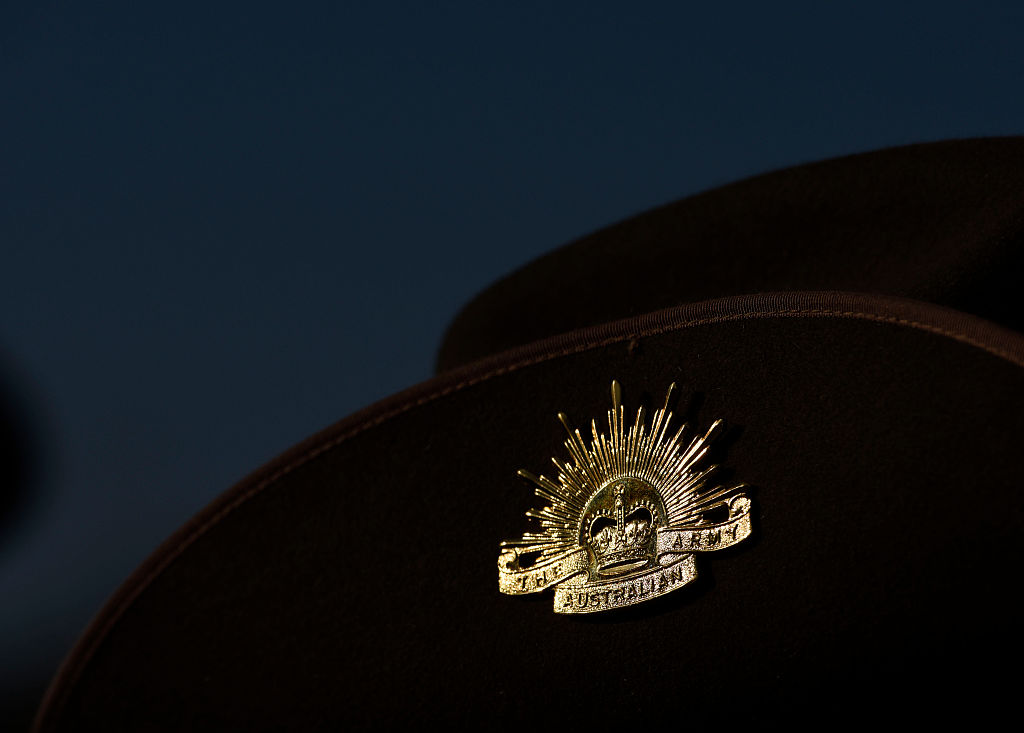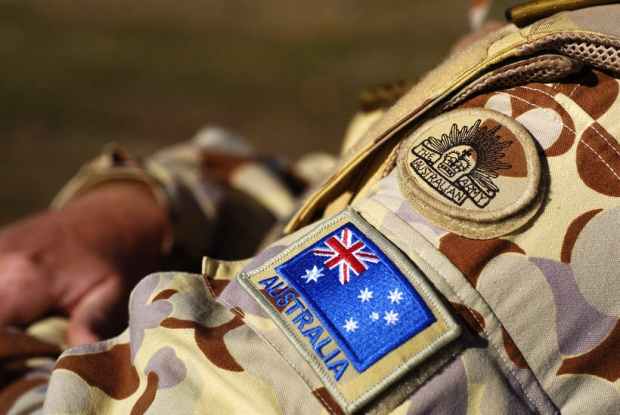 Was it William Shakespeare who wrote, “Put a lawyer into uniform but it cannot a soldier make”?
Was it William Shakespeare who wrote, “Put a lawyer into uniform but it cannot a soldier make”?
Perhaps not, but if he didn’t then perhaps he should have.
Shakespeare actually wrote, “The first thing we do, let’s kill all the lawyers”.
A bit extreme, or is it?
Australia has a proud tradition of soldier-lawyers though on the other side of the ledger lies significant dross.
John Monash achieved degrees in Arts, Law and Engineering at Melbourne University, polymath disciplines which later proved valuable when structural disasters and recalcitrant clients made life difficult.
As an enthusiastic militia officer, he also used those disciplines to demonstrate his military worth, ending World War I as General Sir John Monash GCMG, GCB VD, one of the Allies most respected commanders.
Major General Aziz Gregory Mellick AO SC, thanks to excellent guidance in his early career is a distinguished lawyer who in uniform remains primarily an infantryman.
His separate legal and military careers remain individually distinguished.
Duntroon graduates Bill Rolfe and Geoff Bradd served as infantry officers with the 2nd Battalion Royal Australian Regiment in Vietnam in 1970.
Rolfe stepped on a mine and lost both legs, later studying law and rising to be the army’s head of legal services before retiring as Brigadier William Rolfe AO.
Bradd also studied law before rising to become His Honour Geoffrey Bradd in the NSW magistracy.
Drawing a short straw was Major James Francis Thomas, a modest Tenterfield solicitor and enthusiastic militia officer who was commanding the NSW Citizen’s Bushmen’s mounted contingent in South Africa in 1901.
When rogue British mercenary Lieutenant Harry “Breaker” Morant, Australians Lieutenant George Witton and farrier Sergeant Peter Handcock were accused of summarily executing 12 Boer prisoners and a German missionary, the hapless solicitor Thomas was appointed to defend them at their court martial.
Although the three accused had gone to South Africa with Australian colonial forces, they had transferred to an irregular British unit, the mercenary Bushveldt Carabineers, and were under British military jurisdiction.
For all the mythology surrounding Morant, he admitted his crimes, claiming in his defence he was merely obeying orders.
This did not satisfy British commander Field Marshal Herbert Horatio Kitchener who was determined to make an example of the men.
All were sentenced to be executed by firing squad though Witton’s sentence was reduced to life imprisonment.
Kitchener, in whose prerogative lay mercy, conveniently made himself scarce and the two men were shot.
Thomas then spiralled into an ignominious end.
The old soldier, who never married died aged 81, having been bankrupted, gaoled and disbarred from legal practice.
Fast forward to the Honourable Colonel Dr Michael Joseph Kelly AM MP, restored to his divinely-ordered status as the Member for Eden-Monaro.
The “progressive” Laborite law graduate joined the Australian Army legal corps in 1987 and soon found himself, according to his personal recollections, involved in the first of two “judicial” executions.
Perhaps “extrajudicial” better describes his intimate involvement in the first,
Extrajudicial is defined as “that which is done, given, or affected outside the course of regular judicial proceedings”.
With a doctorate in international law, Kelly claims some temporary responsibility for reforming Somalia’s dysfunctional legal system as the UN struggled to impose control and restore normality.
In April 1993 murderous Somali warlord Hassan Gutaale Abdul’s initial 20-year sentence was increased on appeal to death by firing squad after just 24 hours, when he was summarily shot, despite Somali law clearly allowing 15 days for the appeal process.
It could, therefore, be argued Gutaale’s execution was extrajudicial, despite the abhorrent nature of his crimes.
By his own admission Kelly was present at Gutaale’s execution in Baidoa, when he claims to have physically restrained and escorted the prisoner using “butt stroke and bayonet” from the courtroom to the execution place before any further appeal could be considered.
Kelly claims he felt no emotion at Gutaale’s brutal demise.
“I’ll have to admit that even when I saw him wallowing in his own blood and excrement I felt no remorse or pity, only relief. There was no other way of stopping him,” Kelly was quoted as saying
Kelly was also involved in the execution of Iraqi tyrant Saddam Hussein, or so he claims.
Although every ADF officer receives instruction in military law and the conduct of summary hearings and court martials, presiding over all military jurisprudence are civilian lawyers in uniform, like Kelly.
Their degree of learnedness in the law varies significantly but with a few notable exceptions their detailed knowledge of military matters is sparse.
In 2009 Australian commandos serving in Afghanistan were involved in a night action which resulted in several civilian deaths, including children.
Thorough investigations found the actions were within existing rules of engagement and no charges were warranted.
Then Labor defence minister Stephen Smith, a civilian lawyer intervened, directing the Director of Military Prosecutions Brigadier Lynette McDade to investigate further.
As former army officer and NSW MLC Charlie Lynn has written, “While McDade was awarded the title of ‘brigadier’ and gets to wear a uniform she has never had to earn the rank and has no experience in combat.
“Her military-political sympathies were revealed in an interview where she believed David Hicks had been badly treated because he trained with terrorists in Afghanistan.”
McDade disagreed with the original findings erring towards Smith’s political view, alleging that in the fog of battle, at night under intense fire the commandos “knew or ought to have known” there were unarmed civilians involved.
She directed the men be charged with manslaughter and criminal negligence.
A senior military judge advocate subsequently dismissed her recommendations because there was “insufficient evidence to warrant the laying of charges”.
The former soldiers involved have now commenced unprecedented action against McDade over her prosecution, claiming it was “maliciously, and without reasonable and probable cause”
They are seeking substantial damages.
Hopefully, McDade like Thomas may now find she was well out of her professional depth and her shallow military experience.
Perhaps Shakespeare had it right after all, as he wrote in As You Like It, Jaques to Rosalind: “I have neither the scholar’s melancholy, which is emulation, nor the musician’s, which is fantastical, nor the courtier’s, which is proud, nor the soldier’s, which is ambitious, nor the lawyer’s, which is politic.”
Except perhaps when legal political ambitions attempt to triumph over all.
Ross Eastgate is a military historian, writer and columnist with The Townsville Bulletin. He is a graduate of the Royal Military College Duntroon, a veteran of service in PNG, the Middle East and East Timor.
























